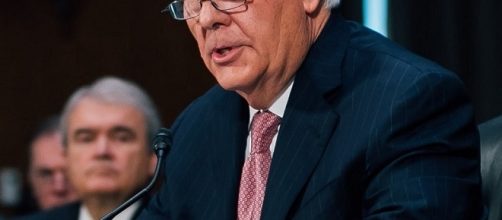On Saturday, Rex Tillerson, the U.S. Secretary of State, had top-level talks with Chinese officials as the Trump administration sought to squeeze the economy of North Korea with the help of China. The US government hoped that the move would finally compel Kim Jong-un’s regime to abandon its nuclear weapons and missile programs.
The US government recognized china’s critical role in preventing a potential military confrontation with North Korea. Kim’s regime has advanced towards developing a nuclear-tipped ICBM that is capable of hitting the US mainland, the Independent reported.
China to cut ties with North Korea
According to top US officials, China now appears to be more willing to sever its economic relations with Kim’s regime. On Thursday, the Chinese government issued an order to close all Pyongyang’s businesses in China, Fox News reported. This would significantly cut revenue to Kim’s regime.
Furthermore, Rex Tillerson suggested that in order to succeed in reaching a diplomatic solution, the US government must first overcome some basic assumptions about China and North Korea.
The first assumption - probably the most difficult one to overcome - involves getting the North’s leader to change his outlook on nuclear weapons, from being the country’s strength to that of a major liability.
The United States intelligence community remains skeptical that Kim Jong-un will willingly end his nuclear weapons program.
The second big assumption involved getting China to implement economic sanctions against its North Korean ally. These sanctions had to be definitely harsh so that the North’s dictator would be backed into a corner. He has to ponder the future of his regime.
Strong opposition from Trump’s detractors
Being the head of the Senate Armed Services Committee, Senator John McCain expressed his skepticism of China’s participation in solving the crisis over the Korean peninsula. Senator McCain said the Chinese government did not do anything for the last three US Presidents. He still remains uncertain that China will do anything to alleviate the escalating tension on the Korean peninsula, Reuters reported.
Herbert Raymond McMaster, the White House National Security Adviser, suggested that military options, even those which were short of a preventative strike, carried the risks of military escalation.
In addition, McMaster emphasized that there is no established list of preconditions for talks with North Korea. He further explained that the military capabilities of Kim’s regime had already advanced too far and that freezing its nuclear weapons program in return for concessions might not be effective.


